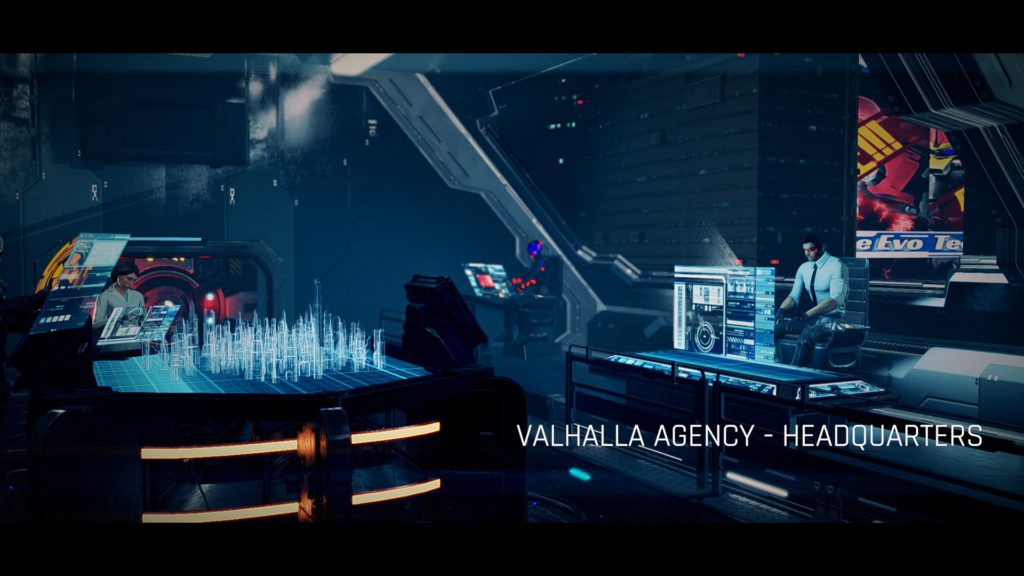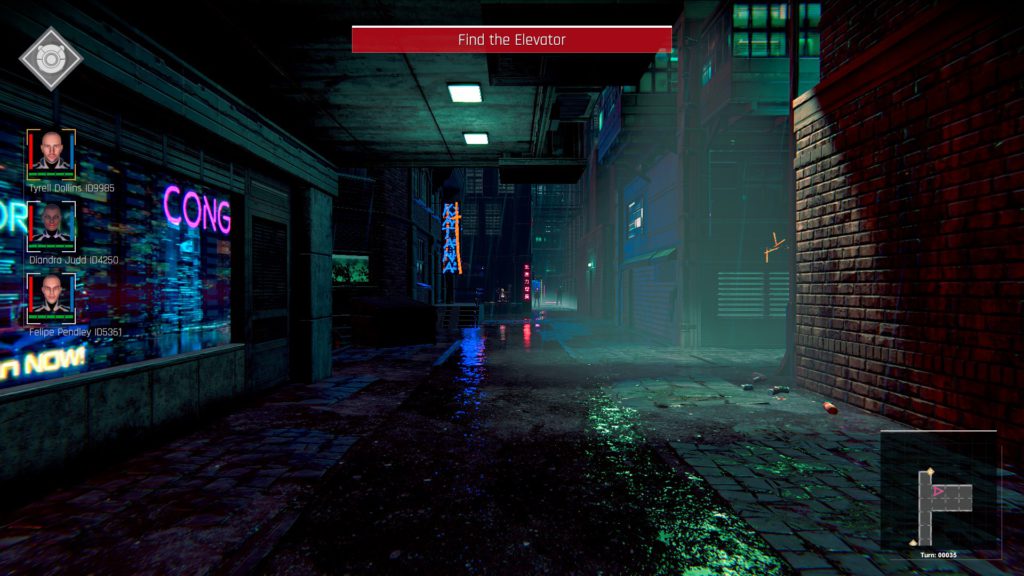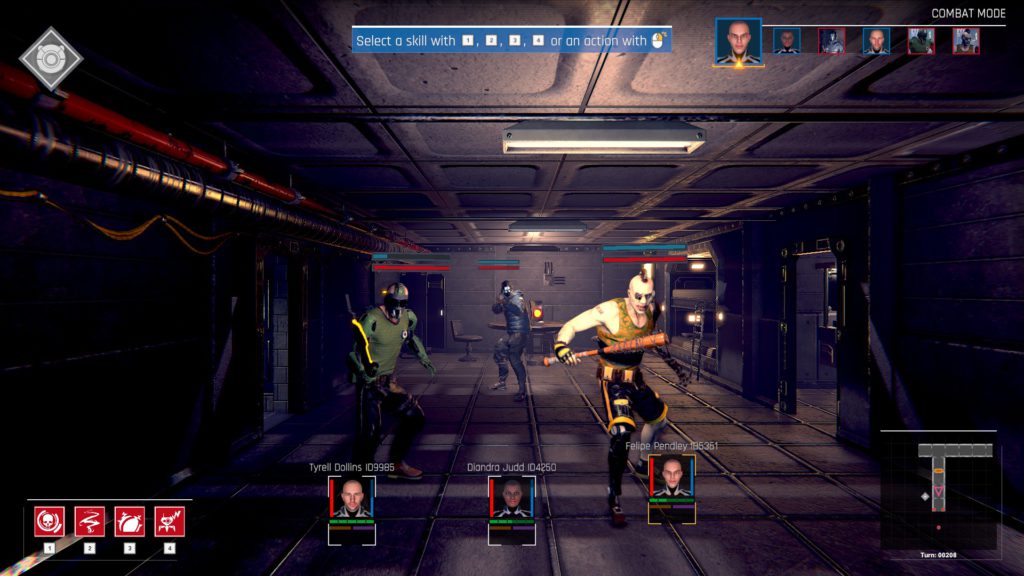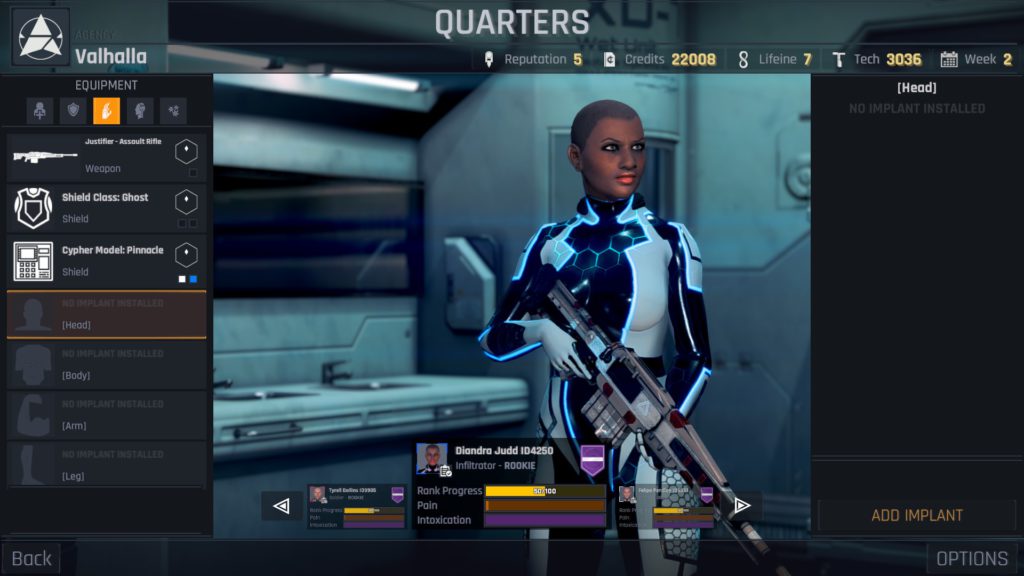
Developer: Runeheads
Publisher: 1C entertainment
Platform: PC, PS4, Linux, Mac
Tested on: PC
Conglomerate 451 – Review
With games such as Cyberpunk 2077 coming up, the cyberpunk genre, in general, is flaring up, as it periodically does. An excellent time to review some other games that happily embrace worlds of neon and android implements, where in this case its name is Conglomerate 451. A conglomerate, by its original meaning, is a corporate group that holds multiple businesses.
Story
The name Conglomerate 451 actually indicates the name of the city and the district this game is about. Judging by that information, it’s safe to say that capitalism brought us a dark dystopian world. You are seen as the boss of an agency whose intention is to lower any influence the gnarly corporations of Conglomerate have. To do so, you get charged with multiple missions that don’t really have a connecting story, but where every single time you are tasked with an objective to something like a PC to upload a virus, a specific bounty to kill, having something to do with a certain object, and more. Complete the objective, and you can go back to the agency to make your squad stronger or expand. Other than that, the game has very little narrative to offer besides whatever the visuals surrounding you tell you about the world of Conglomerate 451.
Graphics
Before you know it, you get thrown into a classic cyberpunk world. Classic, in this case, means that you are surrounded by metal, grime, neon, commercials, robots, and flying cars. This seems rather cool at a first impression, especially when you get to explore some dungeon-type surroundings with elevators and apartments or new levels, but it very quickly turns a bit boring where you seemingly keep visiting the same levels over and over but with different objectives. The lack of assets becomes visible and shrinks your experience, which is a shame because whatever is visible doesn’t even look bad.
Sound
The sound in the game is mostly a layer of synth music and rock that’s on the background as you fight. The game lacks a bit of variation in the sound department, much like the other departments that also hold themselves back. There are a few sound effects but they don’t make much impact, and there is an android sphere hovering (not visible) next to you at all times which serves as a comic relief character with one-liners. Besides this android, it’s basically what you would expect from the bare minimum of a game to be a game.
Gameplay
When starting Conglomerate 451, you will probably go through the tutorial which seems a bit overwhelming with information though it’s actually fairly simple. There’s a part about management in this game where you get to upgrade your squad and research possible advantages to clone new squad members and equip them with better stuff, but most of the game is a turn-based dungeon crawler. Conglomerate 451 is a first-person game at all times, where you walk one tile in the direction of your choice. When you encounter something to loot or interact with, you can click on those things when in range. If you aren’t looting, you will probably have to fight your way through to an objective by encountering groups of enemies.
The game bases itself on a few types of enemies and skills, where again repetitive assets and gameplay seem to stand at the very core. Sure, it can be entertaining to battle, but there’s always an android, a cyborg, or a human standing opposite of you. Essentially you pick one of the skills that each of your team members has in their load-out on their turn, and when it’s the enemy’s turn they will do the same. The game quickly turns into a ”picking the strongest skill versus a certain enemy type” of game, where it luckily gets a bit harder to survive as you progress. Still, fights become a mediocre job to get to the goal of each mission (which seems to essentially be the same mission with different objectives anyway).
Conglomerate 451 is a bit of a pretender. It upholds a front that reflects an intricate system of modification that you can loot, buy, and upgrade. It gives you a few mini-games that you can do to possibly get extra loot during missions, and even has an interesting approach of giving your squad some special skills by letting them make use of the ”battery” (specials bar) they carry around. You can use this battery to i.e. hack an enemy and lower its defenses or defend yourself, but the gameplay that feels repetitive in general largely banishes such initial gameplay mechanics to the background. It’s not bad, but it definitely lacks proper depth and something to balance out the gameplay to keep you going where other similar games have a variety of attacks with different weapons and multiple gear/visual character upgrades.
Conclusion
Conglomerate 451 has some cool things going on. At first look, it has an elaborate system ready to provide a growing gameplay experience and nice graphics that do fit the theme of cyberpunk and dystopia. However, this quickly gets annoying when you figure out the gameplay and the graphics lack variation and proper depth, making the gameplay rather boring despite its increasing difficulty over time. At least with some story connecting missions, the game would be more than ”a bit of fun” with some nice elements, but it simply does not come to that.
Conglomerate 451 - Review,









No Comments